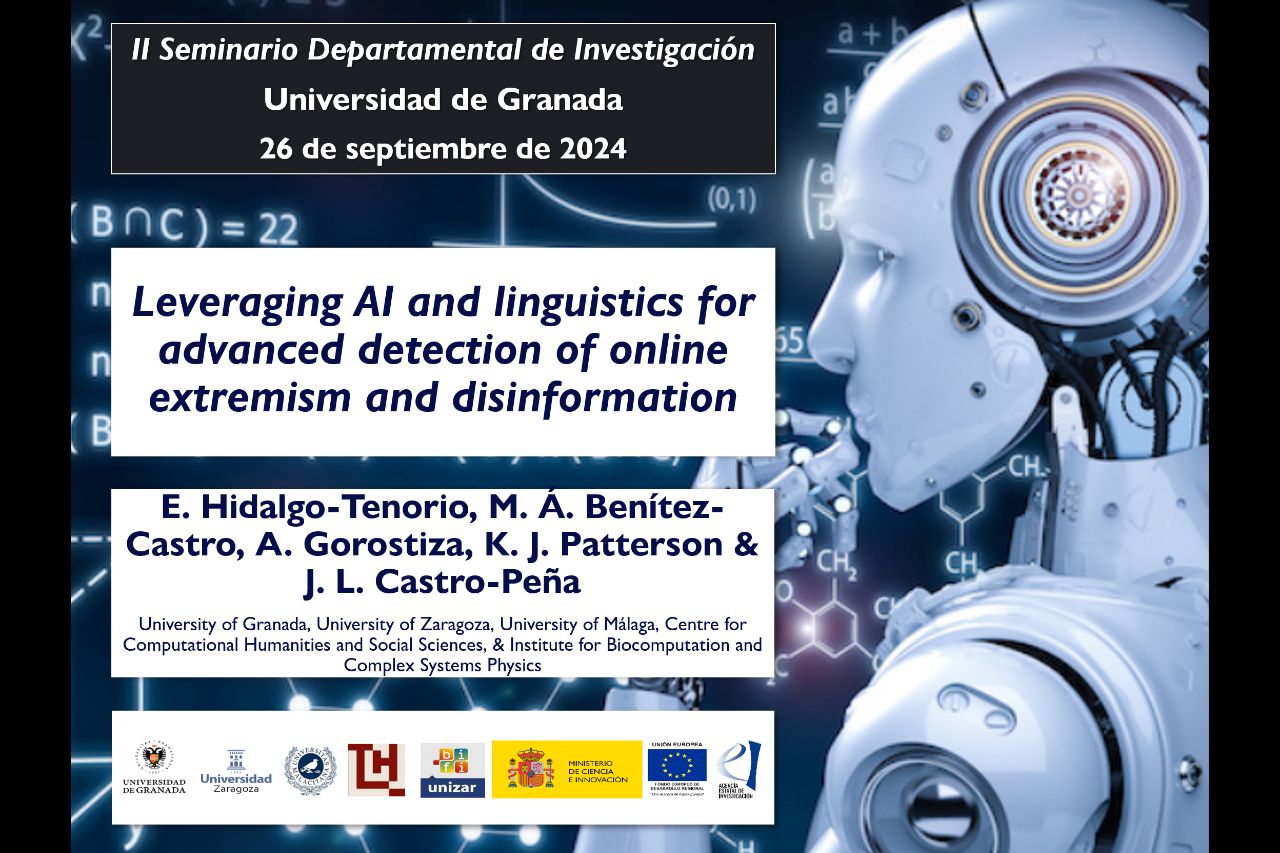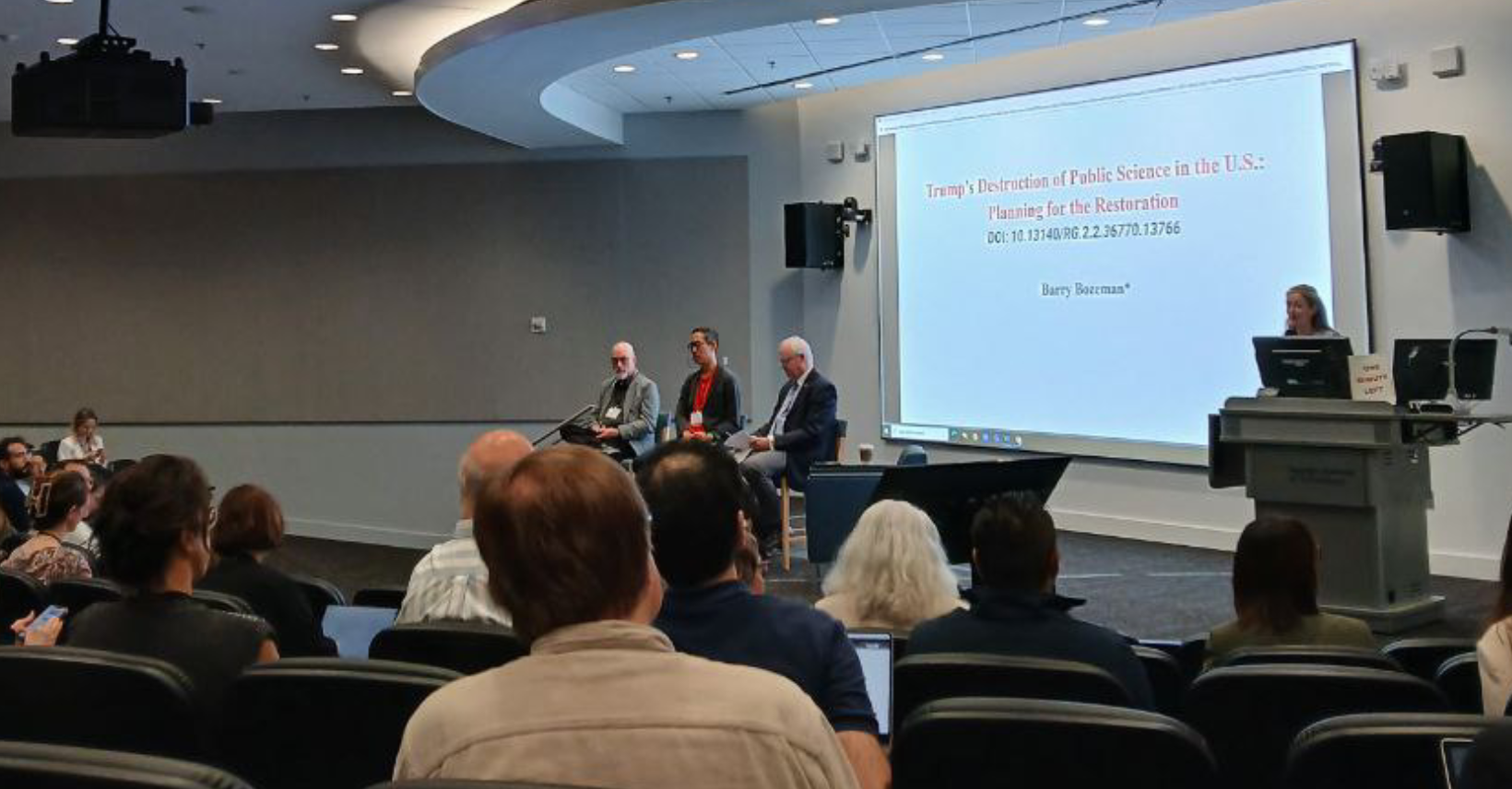Encarnación Hidalgo and Juan Luis Castro, guarantor members of U^CHASS, will be presenting on the use of Artificial Intelligence in combating disinformation online.

As an interdisciplinary scientific unit, U^CHASS explores different areas of research that converge to create unique and socially beneficial lines of work. In the case of Professors Hidalgo and Castro, they will be attending the second seminar organized by the Department of English and German Philology, presenting a project she has been developing since 2017: Nutcracker.
Nutcracker is an algorithm designed to identify extremist profiles, terrorists, and other forms of disinformation accessible on the web. This project, in particular, is the result of the collaboration between linguistic studies and computer science, along with contributions gathered through several European and national projects aimed at combating terrorist rhetoric on the internet.
The talk will address the use of advanced artificial intelligence algorithms combined with linguistic analysis for the detection of extremist rhetoric and online disinformation. The focus will be on how different computational methods and linguistic conditions are applied to a variety of key topics, such as immigration, populism, and climate change.
The seminar will take place next Thursday, September 26th, in the Ana Pardo room at the Faculty of Philosophy and Letters. With a complete and diverse program, Professors Hidalgo Tenorio and Castro Peña’s talk, along with contributions from associated members Miguel-Ángel Benítez and Aritz Gorostiza, will begin at 9:30 AM. Attendance is free and open to the public.
Below is the seminar abstract:
Leveraging AI and Linguistics for Advanced Detection of Online Extremism and Disinformation
Encarnación Hidalgo-Tenorio (1,5), Miguel-Ángel Benítez-Castro (2,5,6), Aritz Gorostiza (1,4,), Katie Jane Patterson (1,5,), Juan-Luis Castro-Peña (3,5).
- Department of English and German, University of Granada
- Department of English and German Philology, University of Zaragoza
- Department of Computer Science and Artificial Intelligence, University of Granada
- Department of Political Science, University of Malaga
- UGR Centre for Computational Humanities and Social Sciences
- Institute for Biocomputation and Physics of Complex Systems, University of Zaragoza.
This paper aims to elucidate the motivations, rationale, and methodological foundations underlying the collaborative efforts between linguistics and computer science that have led to the development of Nutcracker, a cutting-edge semi-supervised algorithm designed for detecting extremist profiles, radicalisation and disinformation on social networking sites. This algorithm, accessible at https//nutcracker.ugr.es, is a result of a transdisciplinary collaboration initiated under the auspices of five national and European research projects, all spearheaded by the University of Granada since 2017. The fruitful synergies established between linguists and computer scientists have progressively empowered the training and implementation of Nutcracker. The algorithm, rooted in what we call deep-relations, focuses on the following objectives: (1) differentiating extremist from non-extremist profiles; (2) distinguishing potential purveyors of disinformation from those who are not involved in disseminating misleading content; (3) identifying user networks through linguistic patterns reflecting attitudes and sentiments (as exemplified in Francisco & Castro, 2020; Francisco, Benítez-Castro, Hidalgo-Tenorio & Castro, 2022). Nutcracker relies on various ontologies, meticulously identified by the discourse analysts in the team (Dhiab-Hassan, Benítez-Castro & Hidalgo-Tenorio, 2018). The algorithm’s ability to detect attitudes and sentiments is built upon an ontology derived from Systemic Functional Linguistics’ Appraisal Theory. Specifically, it incorporates a psychologically inspired version of the taxonomy proposed in Benítez-Castro & Hidalgo-Tenorio (2019). The collaborative endeavours between these disciplines have culminated in the creation of Nutcracker. By seamlessly integrating insights from linguistic analysis and cutting-edge computational techniques, this algorithm serves as a compelling demonstration of the effectiveness of transdisciplinary research in addressing complex challenges at the intersection of technology and societal issues.



